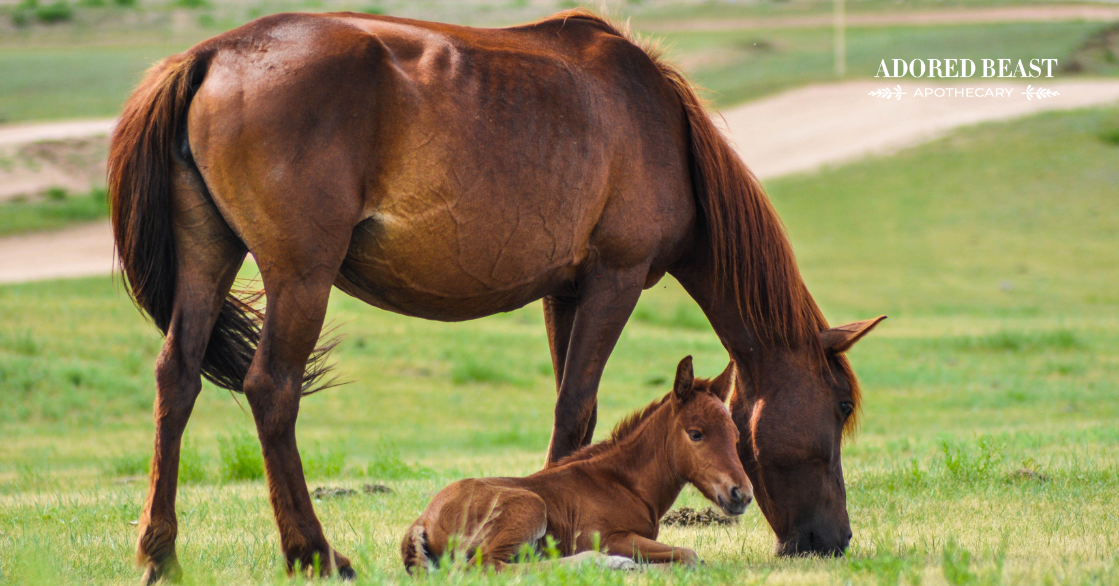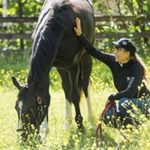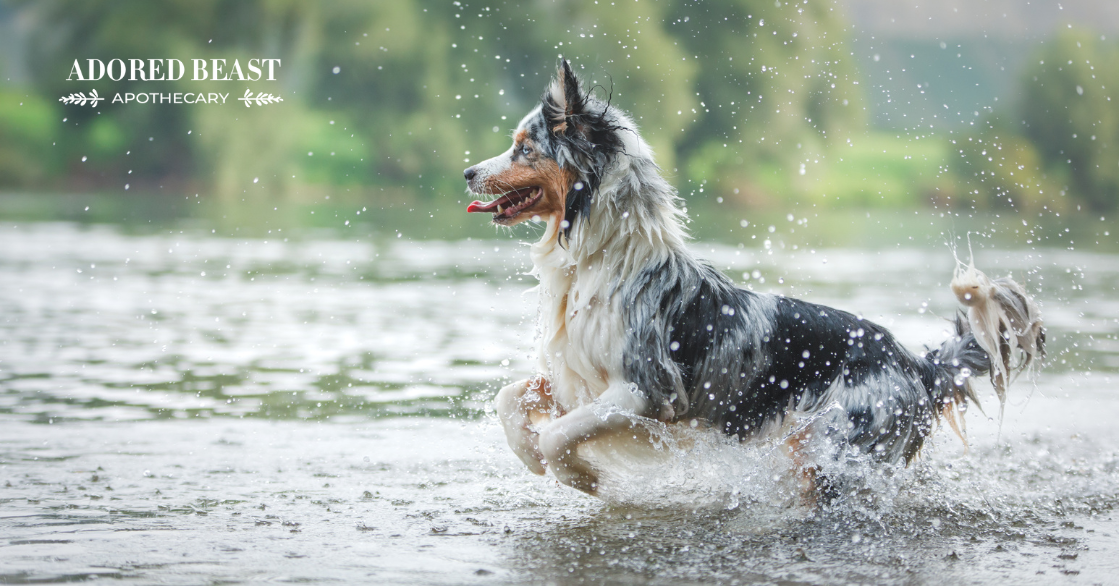One of my favourite things to do is teach young horse owners how to start their babies off right. To me, this means clean, healthy practices that will increase longevity and prevent some of the common illnesses we see in the modern horse.
After heavily researching equine disease for the past several years, I’ve discovered some common issues in conventional equine management that can be easily avoided if you’re aware of them. Today’s article will hopefully help some young horses get on the right track early in life and contribute to a comfortable and enjoyable life.
Starting Young Horses off Right
There are a lot of things to think about when you have a young horse. How will you feed them? Where will they live? What type of work are you hoping to do with them? All of these questions will lead you in the right direction. Understanding some key facts about conventional horse care will help you navigate this very large topic.
While equine medical science has become more advanced in recent years, it has been both a blessing and a curse to our equine friends. There is a lot of new research that isn’t being used in veterinary medicine and stable management practices that should be considered in order to prevent some of the most common diseases affecting domestic horses. The cost of living has risen significantly as well, making it more challenging to do all the extra things we used to do for ourselves and our animals.
There are certain things that we don’t want to skimp on when it comes to young animals because it can lead to more expensive care later on.
Commercial Feed vs. Healthy Food
The subject of diet is a big one and there are lots of varying opinions on how to manage this aspect of horse care, but my humble opinion is that we can never do better than nature. This is why I always recommend feeding horses as closely to their natural way of eating as possible. This means NO heavily extruded or synthetic feeds.
So that we have time to talk specifically about young horse diets today, I encourage you to take a look at my article on why I don’t recommend most commercial feeds by clicking here. In terms of young horses, this plays a huge part in how they grow. And they grow for YEARS, usually up until the age of 5-6 years old.
During a foal’s time with their mother (before weaning) is crucial in terms of growth. It’s important for your veterinarian to come and check a foal regularly during this time to ensure that they are growing well and that your mare is healthy too. What you feed your mare will directly affect the foal so it’s very important to consider the following for both unweaned and weaned babies. As your young horse continues to grow, there are a number of things you can do to ensure the best outcome which will benefit them for their entire lifetime.
Developmental Orthopaedic Disease
Developmental orthopaedic disease (DOD) is the most urgent issue that I will address today. Thankfully, it is largely manageable with diet. Epiphysis is one of the most common diet-related forms of DOD and is associated with a high protein diet in young horses, leading to inflammation of the growth plates of the bone causing flexor tendons to grow incorrectly. Other diseases include OCD – failure of the joint surface to grow correctly in any joint of the body – often the hocks, stifles or fetlocks can be affected. Angular growth deformities can occur with surgery sometimes being required. To help prevent these issues, it important to look closely at how you’re feeding both mare and foal.
My Top 8 Tips Nutritional Tips for Young Horses
1 . Forage
A healthy and varied forage that is herbicide and pesticide-free. Forage should be available at all times to a mare during her time with her foal. She should always have high quality, low sugar hay with a moderate protein content. If you’re not sure what’s in your hay, it’s time to start getting it tested or asking your hay supplier for an analysis. Read my hay article here. 11-13% is an ideal range for protein in hay. Do not use large amounts of alfalfa as this will drastically increase protein levels and can cause abnormal growth of the foal. High sugar hay or high starch feeds will also cause inflammation in the limbs of growing foals and this will affect growth significantly. These are two of the biggest mistakes that people make when raising horses.
2. Vitamins and Minerals
Vitamins and minerals are also very VERY important for all horses but especially important for bone and joint development of foals, yearlings, etc. Calcium is the most unfed mineral and this makes up the largest part of the bone and also greatly affects the neurological system so its imperative that your calcium:phosphorus ratio is in range for healthy growth. Calcium is found in alfalfa and also in beet pulp but both need to be herbicide-free in order to be a healthy dietary addition. In Canada, I recommend using Ontario Dehy Alfalfa cubes and/or Non-GMO Beet Pulp (for lactating mares and young horses aged 6 months to 3 years – between 3-5 lbs per day) and in the US, I recommend using Wild Fed – (4-6 lbs per day) both are healthy/organic feeds that contain important macro and micro minerals and vitamins for healthy growth and are free of the herbicide glyphosate.
3. Body Condition
Be sure to assess the mare and foal’s body condition regularly to understand where they may need adjustments in their nutrient levels. Be sure to also ensure that your mare is lactating well. This is why it’s so important to make sure she has food all the time, so that her milk production stays strong.
4. Herbs and Seeds
Adding herbs and seeds to the diet is also important for trace minerals and phytonutrients. This is a very under-recognized dietary technique that goes miles when it comes to growing young horses. My favorite herbs to use are the ones your horse would have the most access to in a natural setting. Be sure they are certified organic/wildcrafted.
- dandelion leaf
- dandelion root
- red clover leaf and bud
- rose hip
- flax seed
- chia seed
- medicinal mushrooms (eg. chaga, reishi, turkey tail, lion’s mane)
- soil-based humic and fulvic acids
These plants are packed with calcium, magnesium, potassium and vitamins A, C, D and K, omega 3 fats and unique phytochemicals that work as antioxidants (anti-inflammatory) in the body. They naturally occur in a wild horses and diet and are so often missing in modern equine nutrition programs.
5. Supplements
Supplements should be given with care since you can over-do things as much as under-do them when it comes to synthetic supplementation. I do not recommend using industrialised minerals since these can cause mineral deposits in bone and joint during growth. Always use bio-available forms of minerals and ensure that you consult an equine nutritionist to ensure you know which minerals you need to add based on your hay analysis and other foods you might be incorporating.
6. Salt
Avoid industrial salt licks that contain dyes. Use only naturally occurring salt blocks.
7. Gut-Support
Every horse, young and old, should have special care taken when it comes to supporting the gut. Gut disease affects an astounding number of horses and it is time we recognized that we have to do better in this area. The best thing you can do is start your horse’s early on a program that will help the gut flourish rather than be destroyed. Gut health determines a young horse’s ability to absorb nutrients and control systemic inflammation in the body so it’s VERY important to pay attention to both your mare’s gastro-intestinal health as well as a young horse’s. Check out my article on how to prevent gut disease and promote healthy gastrointestinal system that support the entire horse, including the growth and development of a young horse’s joints, bones, ligament and neurological system.
8. A Note on Turnout
Studies show that young horses that are able to move around in a field turnout situation have better joint cartilage integrity than those who stand in small paddocks or stalls for long periods of time. Along with the above healthy nutrition tips, all-day turnout should be considered whenever possible to promote healthy limb growth.
These tips will serve as tools for you over the entire lifetime of your horse but the key is that early establishment of healthy habits can set your horse up for a life of thriving, not just surviving!












